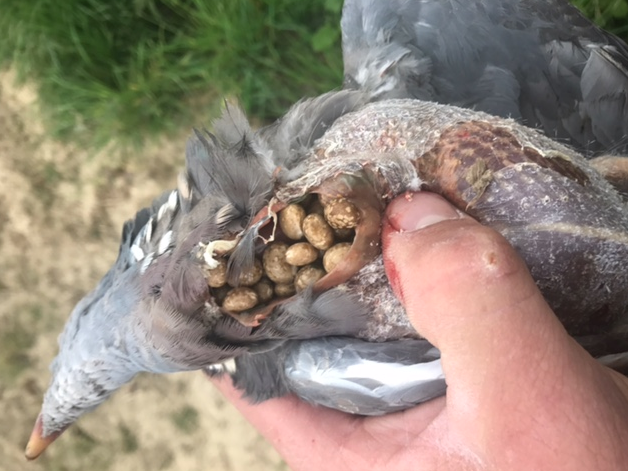
It is shocking that for decades doctors have been advocating no or low salt intake, which has without doubt caused undue health problems.
Why has it taken the eminent Dr James DiNicolantonio, a leading cardiovascular research scientist, or his colleagues so long to dispute the theory that salt is killing us?
Reading his article in the Daily Mail in which he highlights the benefits of salt, and the catastrophic consequences of a deficiency, including obesity, infertility, fatigue, erectile dysfunction, and reducing our bodies ability to withstand trauma and shock, is truly disturbing.
Fortunately livestock farmers have always known better and ignored what they considered to be bad advice. Let us hope the rest of the population read Dr DiNicolantonio’s article, take heed, and increase their intake of salt.
The arable crops are looking remarkably well, although the dreaded Black Grass is appearing to raise its head above the growing crop. This weed is becoming increasingly difficult to deal with as it has built up a resistance to many chemical sprays which we are able to use without damaging the growing crops.
The programme of sprays which we administer are carefully advised by both our agronomist and Independent Soil experts. The latter regularly take both soil and leaf samples which show any deficiencies, particularly during the growing season.
The leaf tissue tests are taken a week before each of the fungicide sprays, so that micronutrients can be added if a deficiency shows up. These can include manganese, zinc, selenium, copper or sulphur. By adding these trace elements to the growing crop helps its growth and balances others elements which can be locked in and not made available to the plant.
There is a surprising amount of ‘science’ related to growing arable crops which unless one is involved with agriculture, most people are totally unaware of. The need for research and development is essential, particularly the advancement of new varieties. Each year new hybrid varieties of wheat, barley, oats and oil seed rape come on the market.
The breeding programmes and trials will have taken years to get to the point where they are available to farmers. Those brave enough to be the first ‘guinea pigs’, often grow bumper crops the first year. Some fall short and do not reach expectations.
It very much depends upon what soil type we farm, and if we are growing for quantity or quality. For example a Grade I wheat which is for bread making is a different grain to that of a Grade II, which would go towards biscuit making. Then Grade III is grown largely for quantity, and marketed as animal feed, much of which is shipped abroad.
The recent rain is helping to keep the crops growing well. What we don’t want now is heavy thundery down pours, as this will flatten the crop as is grows taller.
The Lupins are still under attack from the pigeons which is highly irritating, but new tasty and delicate plants keep popping up which attracts their attention. The larger mature plants are now of little interest to them.
There is so much going on both nationally and globally, that it is increasingly difficult to concentrate on the forthcoming General Election.
However notable local irritants include the destruction and defacing of roadside boards, and the absolute rubbish that is published in certain election leaflets.
In some European countries, including Spain, when information in election literature is clearly untrue about another candidate, those distributing the false information are prosecuted for deformation.
There are definitely some notables in the Lewes constituency who by rights should shortly be having their collars felt by the local constabulary!







 RSS Feed
RSS Feed